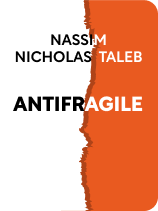

This article is an excerpt from the Shortform book guide to "Antifragile" by Nassim Nicholas Taleb. Shortform has the world's best summaries and analyses of books you should be reading.
Like this article? Sign up for a free trial here .
What is the meaning of modern? How does modern stability reinforce false ideas about stability?
The meaning of modern varies but is considered to be a society in which the structures and systems are consistent over leading to the present. This is problematic when people believe they can force modern society to be stable and prevent changes.
Read more about the meaning of modern society and why enforcing it is untenable.
“Modernity” Is Enforced Stability
So what is the meaning of modern? We touched on how modern society enforces stability with the concept of touristification—removing the risk and randomness from everything, thereby making us tourists in our own lives. But how does this happen?
Remember the Athenians and their reliance on divination. They believed that it was the gods, not humans, who had ultimate control. They may not have truly believed that it was randomness running the world, but they attributed control to some vast, unknowable, and inhuman power. Functionally, it was the same thing.
However, this changes with the onset of rationalization: the idea that the world, and society itself, can be understood and controlled in every facet. Rationalization replaces reliance on the gods with reliance on science and predictive models, and it replaces worshipping at altars with worshipping at flags. It is, in short, humans trying to take power and agency away from random chance (or the gods, or whatever you want to call it).
Once people start thinking that they can control society, they start working to force everyone into the roles they imagine. They reduce people to what is useful, and they try to optimize every aspect of civilization to run as efficiently as possible.
The problem is that such people don’t understand antifragility. Rather than seeing randomness and minor problems as ways to ultimately strengthen their society, they see only inefficiency and obstacles. They try to suppress or eliminate any such obstacles that get in the way of their society’s gears turning smoothly, forever. Of course, as we’ve said before, that only leads to a buildup of invisible problems that eventually tear their orderly society apart.
The real downfall of modernity and rationalization is people’s inability to distinguish between major and minor problems. That’s not a personal failing, it’s simply a human limitation. The sheer amount of information, conflict, and general noise in the world makes it impossible for anyone to properly track and categorize it all; therefore, instead of calmly and methodically dealing with the most serious issues, people try to fix all of them. In doing so, they undermine society’s natural antifragility, and they drive themselves crazy in the process.
First, Do No Harm
The meaning of modern is interesting. Modernity and rationalization are born from the naive idea that human intervention can improve on natural randomness. One example of how this is fatally flawed is the field of iatrogenics: the harm caused by medical intervention.
Throughout history, many people who would have survived unattended have died under the care of doctors. Part of the problem was medical error, but iatrogenics reached its height around the late 19th century with the onset of large-scale clinics and hospitals. Before people knew what germs were, patients were subjected to unsanitized beds, floors, and hands, and died in droves from so-called “hospital fever.” It was only from the 20th century onward that medicine, on average, did more good than harm, largely thanks to antibiotics.
However, modern medicine in particular has a different form of iatrogenics, which arises from conflicts of interest between the professionals and their patients. The most familiar example of this may be the perceived overprescription of painkillers, psychiatric meds, and so on. A doctor who gets kickbacks from drug companies for prescribing their drugs has a clear conflict of interest, one that is obviously harmful to his or her patients.
This is called the agency problem: The one making decisions (the agent) is doing so for his or her own benefit rather than the benefit of the clients. While iatrogenics originated in medicine, it and the agency problem occur in numerous fields. No matter the field, though, it starts with modern, “rational” people thinking that their intervention will make things better.
Iatrogenics also has an opposite; that is, when attempting to harm something makes it stronger. An example is the fierce critics of Ayn Rand who, as we mentioned earlier, ended up spreading her ideas by attacking them. There’s not a word for this specific situation, but it’s clearly an application of antifragility.
The Fragility of Theories
Scientific theories are a key underpinning of rationalization and a dangerous one. Scientists frequently promote theories without stopping to consider the damage that might happen if those theories are wrong.
Think back on the clinics from the previous section: The theory (albeit not a scientific one) was that having a large number of medical professionals and equipment together in the same place, and bringing patients there, would make treatment more efficient and effective. Instead, countless patients died of “hospital fever.”
Furthermore, science—that is, rigorous testing and observation—can be done without resorting to theories at all. There’s even a name for it: phenomenology, the study of phenomena that currently have no theories explaining them. While theories are fragile and often vanish as quickly as they appear, phenomena are durable; they happen the same way every time.
Social sciences are especially vulnerable to flawed theories, and even the theories themselves seem to vary wildly from one school of thought to another. In the cold war years, the University of Chicago was pushing laissez faire economics while the University of Moscow taught the complete opposite. Even calling such ideas “theories” stretches the definition a bit because theories are supposed to be closely examined and supported with concrete evidence.
At any rate, it seems clear that our modern world needs a method to deal with the fragility of theories and the actions we take based on them. Such errors were harmful enough in medicine, where the risk and cost were spread out over large numbers of people. In social sciences and politics, where power is so highly concentrated, things tend to go wrong quickly and explosively.

———End of Preview———
Like what you just read? Read the rest of the world's best book summary and analysis of Nassim Nicholas Taleb's "Antifragile" at Shortform .
Here's what you'll find in our full Antifragile summary :
- How to be helped by unforeseen events rather than harmed by them
- Why you shouldn't get too comfortable or you'll miss out on the chance to become stronger
- Why you should keep as many options available to you as possible






